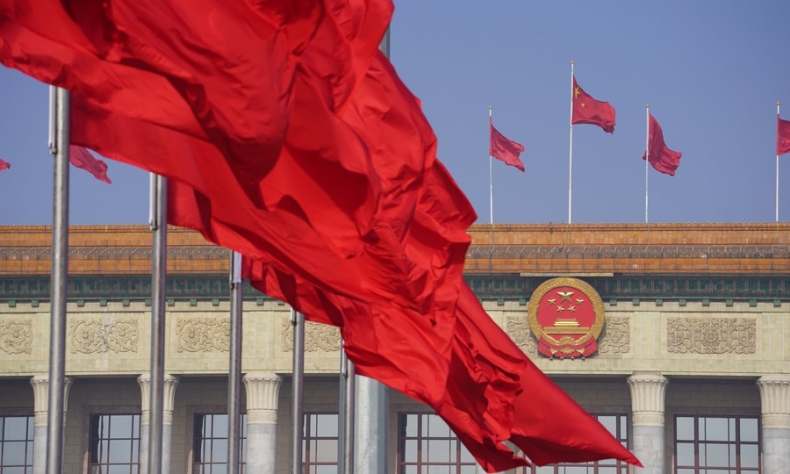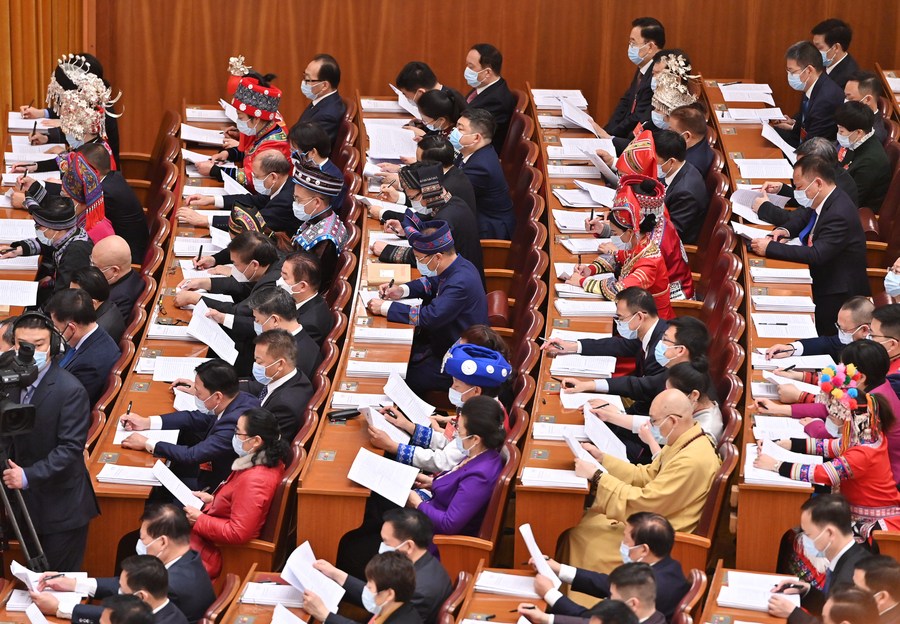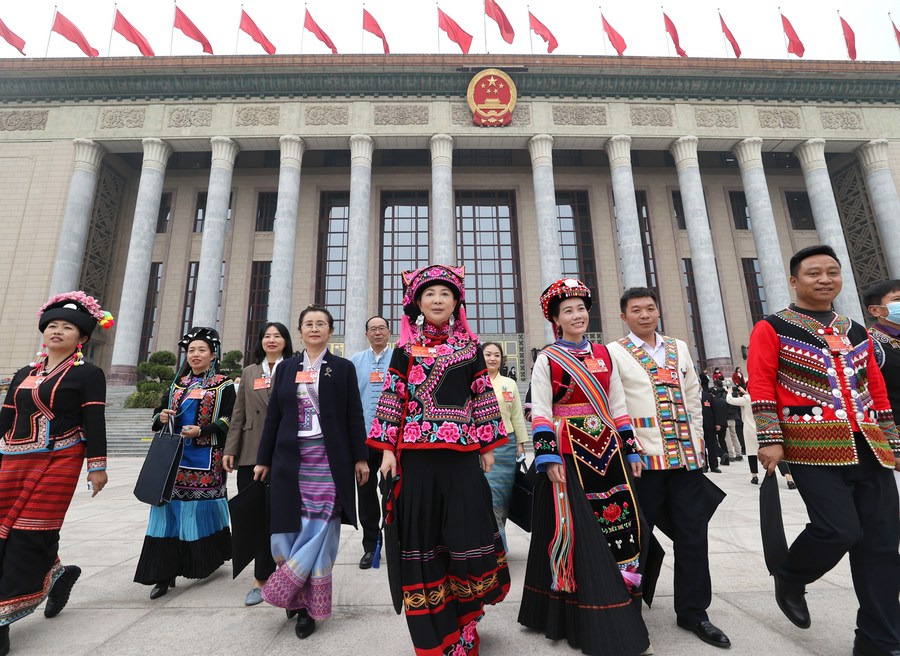What are the Two Sessions?

Politics cannot merely impose itself. Rather, it must represent the needs of the people, their dreams and desires.
The Two Sessions, or liang-hui in Chinese, refer to the annual meetings of the National People’s Congress (NPC) and the Chinese People’s Political Consultative Conference (CPPCC) National Committee in Beijing. The meetings normally take place in March and last around 10 days, with the CPPCC National Committee session opening first. Together, they represent the pinnacle of China’s political season and the top-end of China’s whole-process democracy.
The CPPCC National Committee is China’s top national organ providing advice and consultations. It draws together more than 2,000 members from a very wide spectrum of society, including leading governmental and nongovernmental figures in politics, economics, academics, and the scientific, artistic and sporting communities, along with representatives of ethnic minorities.
It includes Communist Party of China (CPC) members as well as representatives from other political parties and nonpartisan members. There are eight non-communist parties in China, all of which are represented at the CPPCC. It also includes members from China’s mass organizations, including the Communist Youth League, the All-China Federation of Trade Unions and the All-China Women’s Federation. It includes specially invited representatives from Hong Kong and Macao special administrative regions. Perhaps no other state organ in the world represents more diversity in terms of differences and numbers.
At all levels
The CPPCC’s predecessor, the Political Consulta-tive Assembly, first gathered in Chongqing in 1946. That organization sought political solutions among then competing political parties in an attempt to prevent a civil war. Those efforts did not succeed. But in the period of the New Democratic Revolution that followed the communist victory in 1949, the CPPCC emerged as the organizational means for realizing united front efforts, starting the new China down the path of national recovery and reversing a century of losses and humiliation.
The first Constitution of the People’s Republic of China granted the NPC the power and responsibility to legislate starting in 1954, but the CPPCC persisted in its role of uniting different voices and perspectives, and offering them a platform for participating in state affairs, with representatives serving as advisors for the government.

In fact, the practice of using consultative conferences is used throughout China, not just at the top level. They’re also found at the provincial level, the prefecture level and the county level. In short, the CPPCC is the apex of a national consultation system that happens at every level of government.
Western scholars sometimes theorize that the Two Sessions might evolve into a bicameral system, with the CPPCC National Committee eventually serving a role like the U.S. Senate or the UK’s House of Lords. Such thinking is influenced too much by Western political standards. China’s Constitution is clear that its system is unicameral. More to the point, the Chinese system is one that seeks unity and consensus, and the idea of creating a bicameral system of competing legislative houses is completely inconsistent with Chinese political values.
The NPC is the national legislature and China’s supreme state authority, which is elected for a term of five years. It has the power to legislate and oversee the government, the supreme court, the supreme procuratorate and the Central Military Commission. It also elects the major officers of state, including the president. The NPC is made up of nearly 3,000 deputies, elected by provinces, autonomous regions, municipalities, special administrative regions and armed forces, making it the world’s largest legislative body.
The NPC makes its most important decisions at its annual full session. During the rest of the year, the NPC is represented by a Standing Committee of around 160 members, who meet bimonthly. NPC members who are not part of the Standing Committee are unpaid and allowed to hold other government positions. Standing Committee members do receive a salary and are not allowed to hold positions associated with other government branches.
The Two Sessions collectively tend to center on a theme and current priorities, often expressed in the government work report delivered by the premier at the opening of the NPC session. “Unity” is a common theme and this year, many expect economic recovery following the optimization of COVID-19 control measures late last year to dominate discussions. This kind of focus on pressing challenges and problems is consistent with the Chinese Government’s overall mechanism, linking the present to future goals and objectives. China’s development goals are facing headwinds from U.S. unilateral sanctions, climate change and, more recently, the pandemic, and we should expect to see decisions taken at the NPC session either reinforce ongoing policies or codify new efforts to move the country forward.

Private, then public
Some critics describe the Two Sessions, and above all the NPC, as a “rubber stamp” parliament. They argue China’s political system is authoritarian and the Two Sessions are merely window dressing decisions taken by the CPC. Similarly, they argue the CPPCC National Committee has no real authority vis-à-vis the NPC or the government. The reasons why such characterizations are wrong are manifold, but here are three:
First, people’s congresses and CPPCC committees at all levels are highly inclusive, incorporating competing interests and values from a diverse nation. These must be represented and balanced; otherwise the political system at large would be vulnerable to neglecting key constituencies and risk undermining its authority and efficacy.
Second, politics cannot merely impose itself. Rather, it must represent the needs of the people, their dreams and desires. If it doesn’t, the policies it puts in place are unlikely to garner broad public support and therefore fail. And yet, what have we seen in China except a tremendous capacity for its political system to help improve the nation over the decades? Indeed, when we see the results of independent, international polling of satisfaction in government, we find broad approval ratings among the Chinese public—generally ranging from 75-85 percent. This is only possible if government has a mechanism in place that can meet the people’s demands, and the Two Sessions serve that purpose precisely.
Third, the Two Sessions do sometimes register some dissent or disagreement. During the CPPCC National Committee session, for example, there will sometimes be many competing proposals that contradict each other. During the NPC session, deputies can, and generally do, demand changes to the premier’s government work report. There is real power in the congress, and it’s exercised. However, it’s also the case that a lot of the politics takes place before the meetings do. China doesn’t like to show its disagreements too publicly. Therefore, a lot of the consensus building and compromises have already occurred before March, and the Two Sessions then represent the unambiguous, unified path forward for the nation.
The author is a professor of politics and international relations at East China Normal University and a senior research fellow with the Institute for the Development of Socialism With Chinese Characteristics at Southeast University.
 Facebook
Facebook
 Twitter
Twitter
 Linkedin
Linkedin
 Google +
Google +










